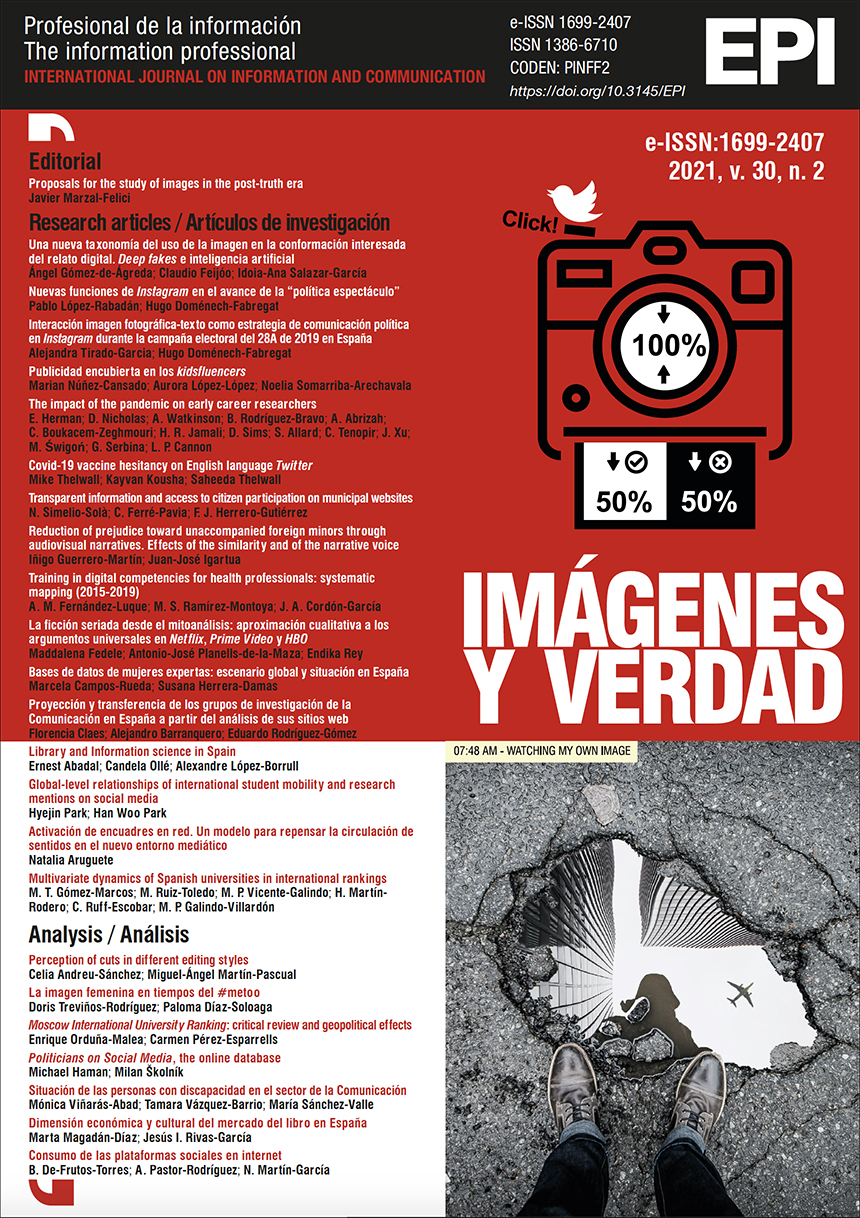Mythanalysis of fiction series: a qualitative approach to universal storylines on Netflix, Prime Video, and HBO
DOI:
https://doi.org/10.3145/epi.2021.mar.21Keywords:
Series, Serialized fiction programs, Universal storylines, Mythanalysis, Myths, Storytelling, Television, Netflix, Prime Video, HBOAbstract
Recent decades have seen an unprecedented proliferation of serialized audio-visual narratives within the backdrop of the so-called third golden age of television, in the context of meta-television and quality television. The new digital platforms of content distribution have also influenced this. This article delves into the mythanalysis of current serialized audio-visual stories by analyzing their narrative structure to detect which kind of model or mythical portrayals they present to the audience. A qualitative content analysis, combined with a close reading, which included the mythanalysis categories of Balló and Pérez (1997), was carried out on a random sample of 40 serialized fiction programs available on the main streaming platforms (Netflix, Prime Video, and HBO) from their introduction in Spain until 2020. Among the results, a dominant presence of serials stands out, as well as strong hybridization between fiction genres and subgenres. Most of the original myths are revisited in an individualistic tone and focus on the development of personal identity, in addition to a few narratives centered on collective myths. In this sense, the classic myths most present in the sample are those focused on the individual, especially those referring to self-knowledge. Also, new narrative models emerge, and we find cases where the original myths are adapted to contemporary sensitivities by providing more egalitarian portrayals, at the level of race (such as the mestizo messiah) and especially at the level of gender (such as journey of empowerment, love towards oneself, or the freed woman).
Downloads
Downloads
Published
How to Cite
Issue
Section
License
Dissemination conditions of the articles once they are published
Authors can freely disseminate their articles on websites, social networks and repositories
However, the following conditions must be respected:
- Only the editorial version should be made public. Please do not publish preprints, postprints or proofs.
- Along with this copy, a specific mention of the publication in which the text has appeared must be included, also adding a clickable link to the URL: http://www.profesionaldelainformacion.com
- Only the final editorial version should be made public. Please do not publish preprints, postprints or proofs.
- Along with that copy, a specific mention of the publication in which the text has appeared must be included, also adding a clickable link to the URL: http://revista.profesionaldelainformacion.com
Profesional de la información journal offers the articles in open access with a Creative Commons BY license.




